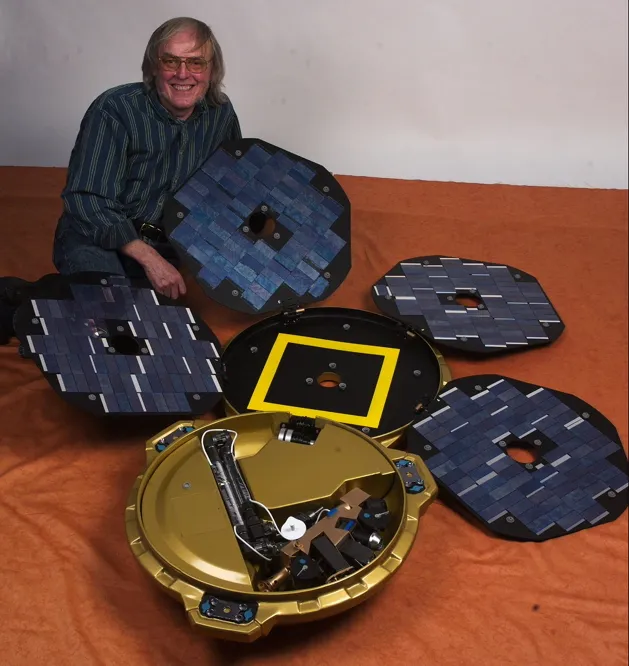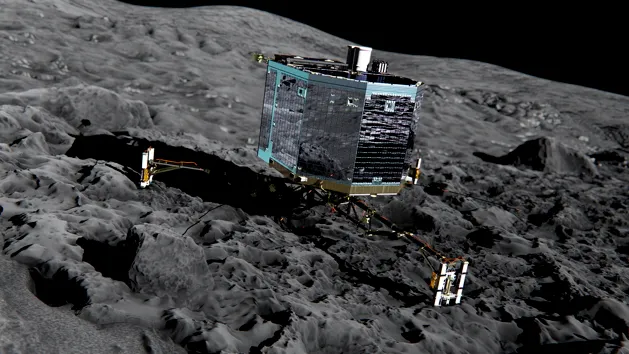Prof Colin Pillinger, the British planetary geochemist best known for leading the Beagle 2 project to land a spacecraft on Mars, has died on 7 May at the age of 70, after suffering a brain haemorrhage.
Beagle 2 was the attempt to land a British-built spacecraft on Mars on Christmas Day 2003, to search for evidence of life on the Red Planet. It was launched along with the successful Mars Express probe in June 2003, but contact with it was never established after it separated from the Mars satellite.
Beagle 2 was not designed to contact Earth while it made its descent through the Martian atmosphere, and so the reason for its loss has never been definitely identified. It's thought that the lander hit Mars's surface travelling too fast, as the planet's atmosphere was thinner than project scientists had planned for, giving too little time for its parachute and airbags to give a soft landing.

The project led by Prof Pillinger was to have been the first to carry equipment to look for Martian life since the twin Viking landers touched down in 1976.
Beagle 2's suite of instruments included an onboard mass spectrometer that would have searched for organic material, water and water-deposited minerals, a robot arm and a spring loaded 'harpoon' known as Pluto, which could move up to a metre away from or beneath the lander to get samples, as well as the first optical microscope to fly to Mars and a gas analysis package that would have tested the results of Viking's contentious experiment to test for organic compounds on Mars, the Gas Chromatograph Mass Spectrometer .
The Beagle project cost a mere $40 million compared with Viking's $1 billion, and weighed less than one tenth of each fully fueled Viking lander.

Prof Pillinger was involved in other many other missions, including ESA's Rosetta mission, which is due to meet its target, comet Churyumov-Gerasimenko, in August this year after a 10 year journey around the Solar System. He was principal investigator on Rosetta lander's Ptolemy instrument, a mass spectrometer, which will analyse the chemical components of the comet's nucleus.
Other missions he played a part in included NASA's 2004 Genesis mission to collect samples from the solar wind and return them to Earth to study the make-up of the primordeal nebula that gave rise to the Solaer System, the EUROMET meteorite collecting programme of the 1990s, and developing a way of testing whether meteorites originated on Mars.
The questions he tackled during more than 40 years of research built on his chemistry degree and Ph.D from University College Swansea, which focused on mass spectrometry. In 1968, he put this training to use for the Apollo programme, analysing samples of lunar soil.
Born on 9 May 1943, in Kingswood, Bristol, Colin Pillinger was awarded a CBE in 2003; and main-belt asteroid 15614 was named for him after its discovery in 2000.
